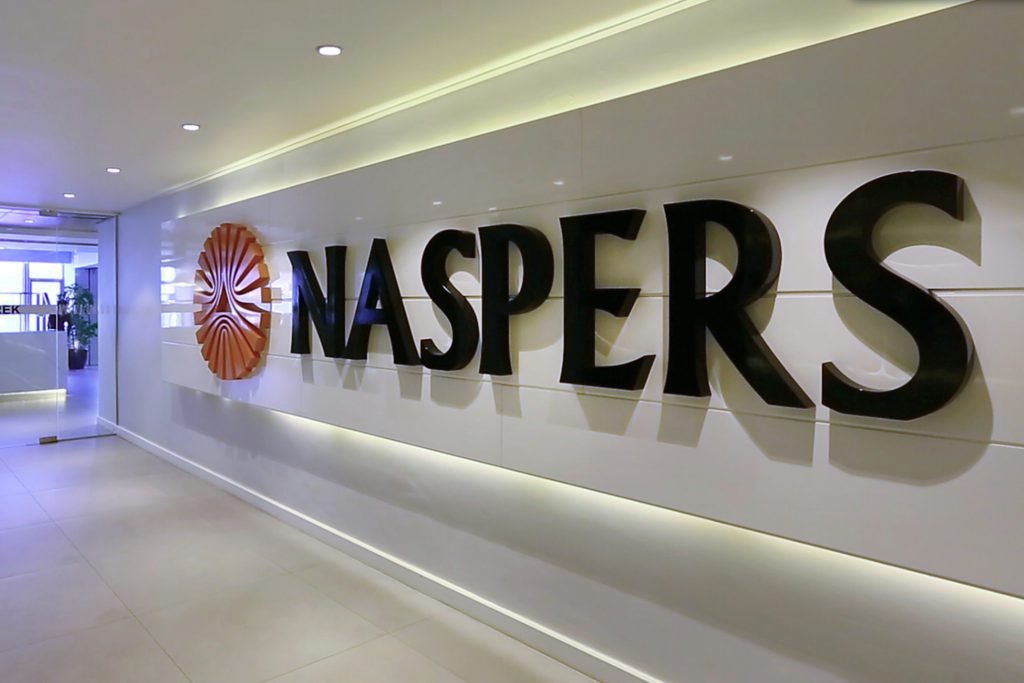China’s tightening of regulations on its technology sector has raised concerns among investors globally, including in South Africa. That is because the country’s stock market, home of Africa’s largest bourse, is dominated by Naspers, a Cape Town-based company, which is the largest shareholder in Tencent, one of China’s most valuable companies.
Naspers, a once prosperous but modest Cape Town company, is now a global internet group with technology investments around the world. It started out with interests in publishing and online retail and spent most of the 20th century publishing Afrikaans-language newspapers and magazines.
However, as the millennium turned, Naspers executives questioned if they needed to transition away from newspapers to the digital realm.
The Johannesburg-listed Naspers acquired 46.5 percent of Tencent for only $32 million back in 2001, when the Chinese company was just a plucky start-up. In the years since Naspers’ stake in Tencent has whittled down to around 29 percent.
However, the value of the stake continued to grow to a large degree, reaching about $200 billion – not bad for a humble newspaper company at the foot of Africa.
“Naspers is essentially a holding company for a big investment in Tencent,” says Gary Booysen, portfolio manager at Rand Swiss, a Johannesburg investment company.
This also means that, for better or worse, Naspers now completely dominates the Johannesburg Stock Exchange (JSE). “Naspers is such an important part of our index that whenever there’s a move in the share price, it feeds through to the index,” Mr Booysen adds.
Naspers has around 20 percent weighting on the JSE benchmark index. The company has tried to reduce its crushing weight on the bourse by creating a separate entity called Prosus, which is listed in Amsterdam, the Netherlands.
Prosus now holds Naspers’ Tencent share and other technology stocks, while Naspers controls more than 70 percent of Prosus. The latter is also listed on the JSE, with the net result being South African investors finding it almost impossible not to include one – or both of these counters – in their portfolios.
With so many investment managers relying on exchange-traded funds (ETFs) and other passive index-related instruments, both these shares now underpin the country’s savings industry, according to David Shapiro, chief global equity strategist at Johannesburg-based Sasfin Securities.
“We’ve shifted to index investing, exchange-traded funds and the like, and many of those have large exposure to Naspers and Prosus,” he says.
The current meltdown in Chinese tech stocks such as Alibaba and Tencent – the top two most valuable companies in China – has agonised their shareholders, including Naspers. With so many portfolios exposed to China, it means many South African investors can do little but sit and hope for the situation to reverse.
“It’s hurting the savings of this country and there’s no way out,” Mr. Shapiro says.
Naspers itself is aware of its uneasy position as a shareholder in a runaway titan and has used some of the money pouring in to buy other assets to diversify.
This month, Prosus said it would purchase the Indian payments platform BillDesk for $4.7bn, which will complement PayU, the platform Naspers already owns.
“Together, the two expect to create a financial ecosystem handling four billion transactions annually – four times PayU’s current level in India,” Prosus said. It has also reduced its holding in Tencent, selling a 2 percent stake in 2018, which raised around $10bn to fund other investments.
However, given the sheer size of the company and the persistent underlying dependence on Tencent for its value, Naspers’ share price has continued to decline over the past year. While Tencent has lost around 40 percent of its all-time high share price, Naspers has declined about 25 percent.
A steady trickle of new rules by Chinese regulators – such as putting limits on how many hours children can play video games and banning private tutors from giving classes online – continue to cause concern for Tencent investors.
South African investors can now only wait and hope that regulators have gone as far as they can, says Peter Armitage, chief executive of Johannesburg-based Anchor Capital.
“It’s probably gotten as close to what regulators want to do. Probably, in hindsight, a lot of these changes could have been predicted.”
(Except for the headline, this story has not been edited by The Finance World staff and is published from a syndicated feed.)

